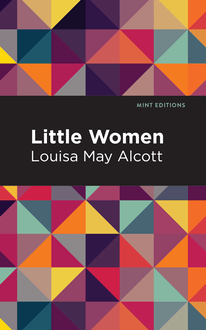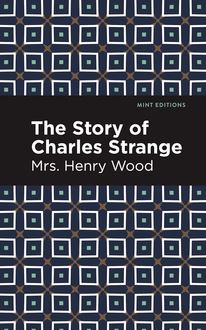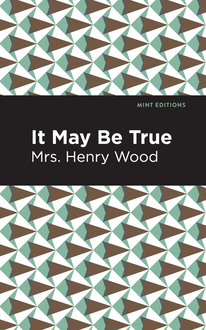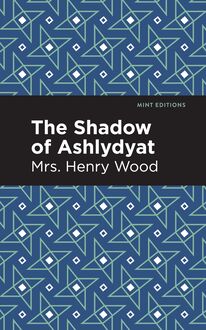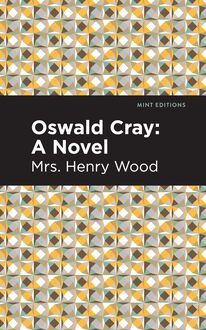-
 Univers
Univers
-
 Ebooks
Ebooks
-
 Livres audio
Livres audio
-
 Presse
Presse
-
 Podcasts
Podcasts
-
 BD
BD
-
 Documents
Documents
-
- Cours
- Révisions
- Ressources pédagogiques
- Sciences de l’éducation
- Manuels scolaires
- Langues
- Travaux de classe
- Annales de BEP
- Etudes supérieures
- Maternelle et primaire
- Fiches de lecture
- Orientation scolaire
- Méthodologie
- Corrigés de devoir
- Annales d’examens et concours
- Annales du bac
- Annales du brevet
- Rapports de stage
La lecture à portée de main
Vous pourrez modifier la taille du texte de cet ouvrage
Découvre YouScribe en t'inscrivant gratuitement
Je m'inscrisDécouvre YouScribe en t'inscrivant gratuitement
Je m'inscrisEn savoir plus
Vous pourrez modifier la taille du texte de cet ouvrage
En savoir plus

Description
Though Charles rarely finds himself in the sticky situations many of his friends do, he is happy to listen, sympathize, and offer advice. Known for being charming and morally upright, Charles enjoys his reputation of strong values, because of the turbulent adolescence he experienced which led to the adoption of these beliefs. As a child, Charles was forced to give up special occasions, such as birthday parties, to accommodate his sick mother. Finding solace in faith as she succumbed to her illness, Charles’ mother did her best to impart her ideals on her young son. After her passing, Charles was raised by his father and Leah, a loyal worker employed by the family. As he grows, Charles struggles to adjust to the constant changes in his life. From losing his mother, growing older, and accepting his father’s new marriage, Charles must hold tight to the values passed on to him from his family and community, careful not to lose them in the chaotic journey of becoming an adult. Featuring themes of friendship, family, and morality, The Story of Charles Strange by Mrs. Henry Wood follows the life of an idealistic man. With perfect prose and intimate detail, readers are allowed to accompany Charles as he comes of age, overcoming tragedy and adversity. First published in the late 19th century, The Story of Charles Strange continues to fascinate and delight audiences with its insight on the culture and customs of the time, as well as its lovely storyline. This edition of The Story of Charles Strange by Mrs. Henry Wood now features a new, eye-catching cover design and is printed in a font that is both modern and readable. With these accommodations, this edition of The Story of Charles Strange crafts an accessible and pleasant reading experience for modern audiences while restoring the original sentiment and drama of Mrs. Henry Wood’s work.
Sujets
Informations
| Publié par | Mint Editions |
| Date de parution | 14 mai 2021 |
| Nombre de lectures | 0 |
| EAN13 | 9781513286198 |
| Langue | English |
Informations légales : prix de location à la page 0,0500€. Cette information est donnée uniquement à titre indicatif conformément à la législation en vigueur.
Extrait
The Story of Charles Strange
Mrs. Henry Wood
The Story of Charles Strange was first published in 1888.
This edition published by Mint Editions 2021.
ISBN 9781513281179 | E-ISBN 9781513286198
Published by Mint Editions®
minteditionbooks.com
Publishing Director: Jennifer Newens
Design & Production: Rachel Lopez Metzger
Project Manager: Micaela Clark
Typesetting: Westchester Publishing Services
C ONTENTS V OLUME I I. E ARLY D AYS II. C HANGES III. M R . S ERJEANT S TILLINGFAR IV. I N E SSEX S TREET V. W ATTS ’ S W IFE VI. B LANCHE H ERIOT VII. T RIED AT THE O LD B AILEY VIII. T HE V INE - COVERED C OTTAGE AT P ISA IX. C OMPLICATIONS X. T HE H OUSE AT M ARSHDALE XI. T HE Q UARREL XII. M YSTERY V OLUME II I. S USPICION II. N OT L IFTED III. O NE N IGHT IN E SSEX S TREET IV. L EAH ’ S S TORY V. L ADY C LAVERING VI. T HE M ISSING W ILL VII. A NNABEL VIII. P ERRY ’ S R EVELATION IX. S OMEONE E LSE S EEN X. P ROWLING A BOUT XI. M RS . B RIGHTMAN XII. M Y L ORD AND M Y L ADY V OLUME III I. O N THE W ATCH II. T OM H ERIOT III. A N E VENING V ISITOR IV. R ESTITUTION V. C ONFESSION VI. D ANGER VII. W ITH M R . J ONES VIII. A N A CCIDENT IX. L AST D AYS X. L AST W ORDS XI. D OWN AT M ARSHDALE XII. I N THE E AST W ING XIII. C ONCLUSION
VOLUME I
I
E ARLY D AYS
I , Charles Strange, have called this my own story, and shall myself tell a portion of it to the reader; not all.
M AY WAS QUICKLY PASSING . T HE drawing-room window of White Littleham Rectory stood open to the sunshine and the summer air: for the years of warm springs and long summers had not then left the land. The incumbent of the parish of White Littleham, in Hampshire, was the Reverend Eustace Strange. On a sofa, near the window, lay his wife, in her white dress and yellow silk shawl. A young and lovely lady, with a sweet countenance; her eyes the colour of blue-bells, her face growing more transparent day by day, her cheeks too often a fatal hectic; altogether looking so delicately fragile that the Rector must surely be blind not to suspect the truth. She suspected it. Nay, she no longer suspected; she knew. Perhaps it was that he would not do so.
“Charley!”
I sat at the end of the room in my little state chair, reading a new book of fairy tales that papa had given me that morning. He was as orthodox a divine as ever lived, but not strait-laced, and he liked children to read fairy tales. At the moment I was deep in a tale called “Finetta,” about a young princess shut up in a high tower. To me it was enchanting.
“Yes, mamma.”
“Come to me, dear.”
Leaving the precious book behind me, I crossed the room to the sofa. My mother raised herself. Holding me to her with one hand, she pushed with the other the hair from my face and gazed into it. That my face was very much like hers, I knew. It had been said a hundred times in my hearing that I had her dark-blue eyes and her soft brown hair and her well-carved features.
“My pretty boy,” she said caressingly, “I am so sorry! I fear you are disappointed. I think we might have had them. You were always promised a birthday party, you know, when you should be seven years old.”
There had been some discussion about it. My mother thought the little boys and girls might come; but papa and Leah said, “No—it would fatigue her.”
“I don’t mind a bit, mamma,” I answered. “I have my book, and it is so pretty. They can come next year, you know, when you are well again.”
She sighed deeply. Getting up from the sofa, she took up two books that were on the stand behind her, and sat down again. Early in the spring some illness had seized her that I did not understand. She ought to have been well again by this time, but was not so. She left her room and came downstairs, and saw friends when they called: but instead of growing stronger she grew weaker.
“She was never robust, and it has been too much for her,” I overheard Leah say to one of the other servants, in allusion to the illness.
“What if I should not be here at your next birthday, Charley?” she asked sadly, holding me to her side as she sat.
“But where should you be, mamma?”
“Well, my child, I think—sometimes I think—that by that time I may be in heaven.”
I felt suddenly seized with a sort of shivering. I neither spoke nor cried; at seven years old many a child only imperfectly realizes the full meaning of anything like this. My eyes became misty.
“Don’t cry, Charley. All that God does must be for the best, you know: and heaven is a better world than this.”
“Oh, mamma, you must get well; you must!” I cried, words and tears bursting forth together. “Won’t you come out, and grow strong in the sunshine? See how warm and bright it is! Look at the flowers in the grass!”
“Ay, dear; it is all very bright and warm and beautiful,” she said, looking across the garden to the field beyond it. “The grass is growing long, and the buttercups and cowslips and blue-bells are all there. Soon they will be cut down and the field will be bare. Next year the grass and the flowers will spring up again, Charlie: but we, once we are taken, will spring up no more in this world: only in heaven.”
“But don’t you think you will get well, mamma? Can’t you try to?”
“Well, dear—yes, I will try to do so. I have tried. I am trying every day, Charley, for I should not like to go away and leave my little boy.”
With a long sigh, that it seemed to me I often heard from her now, she lay for a moment with her head on the back of the sofa and closed her eyes. Then she sat forward again, and took up one of the books.
“I meant to give you a little book to-day, Charley, as well as papa. Look, it is called ‘Sintram.’ A lady gave it me when I was twelve years old; and I have always liked it. You are too young to understand it yet, but you will do so later.”
“Here’s some poetry!” I cried, turning the leaves over. The pleasure of the gift had chased away my tears. Young minds are impressionable—and had she not just said she would try to get well?
“I will repeat it to you, Charley,” she answered. “Listen.”
“Repeat it?” I interrupted. “Do you know it by heart?—all?”
“Yes, all; every line of it.
“‘When death is drawing near,
And thy heart sinks with fear,
And thy limbs fail,
Then raise thy hands and pray
To Him who cheers the way,
Through the dark vale.
“‘See’st thou the eastern dawn?
Hear’st thou, in the red morn,
The angels’ song?
Oh! lift thy drooping head,
Thou who in gloom and dread
Hast lain so long.
“‘Death comes to set thee free;
Oh! meet him cheerily,
As thy true friend;
And all thy fears shall cease,
And in eternal peace
Thy penance end.’
You see, Charley, death comes not as a foe, but as a friend to those who have learnt to look for him, for he is sent by God,” she continued in a loving voice as she smoothed back my hair with her gentle hand. “I want you to learn this bit of poetry by heart, and to say it sometimes to yourself in future years. And—and—should mamma have gone away, then it will be pleasant to you to remember that the angels’ song came to cheer her—as I know it will come—when she was setting out on her journey. Oh! very pleasant! and the same song and the same angel will cheer your departure, my darling child, when the appointed hour for it shall come to you.”
“Shall we see the angel?”
“Well—yes—with the eye of faith. And it is said that some good people have really seen him; have seen the radiant messenger who has come to take them to the eternal shores. You will learn it, Charley, won’t you—and never forget it?”
“I’ll learn it all, every verse; and I will never forget it, mamma.”
“I am going to give you this book, also, Charley,” she went on, bringing forward the other. “You—”
“Why, that’s your Bible, mamma!”
“Yes, dear, it is my Bible; but I should like it to be yours. And I hope it will be as good a friend to you as it is now to me. I shall still use it myself, Charley, for a little while. You will lend it me, won’t you? and later, it will be all your own.”
“Shall you buy another for yourself, then?”
She did not answer. Her face was turned to the window; her yearning eyes were fixed in thought upon the blue sky; her hot hands were holding mine. In a moment, to my consternation, she bent her face upon mine and burst into a flood of tears. What I should have said or done, I know not; but at that moment my father came swiftly out of his study, into the room. He was a rather tall man with a pale, grave face, very much older than his wife.
“Do you chance to remember, Lucy, where that catalogue of books was put that came last week? I want—”
Thus far had he spoken, when he saw the state of things; both crying together. He broke off in vexation.
“How can you be so silly, Lucy—so imprudent! I will not have it. You don’t allow yourself a chance to get well—giving way to these low spirits! What is the matter?”
“It is nothing,” she replied, with another of those long sighs. “I was talking a little to Charley, and a fit of crying came on. It has not harmed me, Eustace.”
“Charley, boy, I saw some fresh sweet violets down in the dingle this morning. Go you and pick some for mamma,” he said. “Never mind your hat: it is as warm as midsummer.”
I was ready for the dingle, which was only across the field, and to pick violets at any time, and I ran out. Leah Williams was coming in at the garden gate.
“Now, Master Charles! Where are you off to? And without your hat!”
“I’m going to the dingle, to get some fresh violets for mamma. Papa said my hat did not matter.”
“Oh,” said Leah, glancing doubtfully at the window. I glanced too. He had sat down on the sofa by mamma then, and was talking to her earnestly, his head bent. She had her handkerchief up to her face. Leah attacked me again.
“You’ve been crying, you naughty boy! Your eyes are wet still. What was that for?”
I did not say what: though I had much ado to keep the tears from falling. “Leah,” I whispered, “do you think mamma will get well?”
“Bless the child!” she excla
-
 Univers
Univers
-
 Ebooks
Ebooks
-
 Livres audio
Livres audio
-
 Presse
Presse
-
 Podcasts
Podcasts
-
 BD
BD
-
 Documents
Documents
-
Jeunesse
-
Littérature
-
Ressources professionnelles
-
Santé et bien-être
-
Savoirs
-
Education
-
Loisirs et hobbies
-
Art, musique et cinéma
-
Actualité et débat de société
-
Jeunesse
-
Littérature
-
Ressources professionnelles
-
Santé et bien-être
-
Savoirs
-
Education
-
Loisirs et hobbies
-
Art, musique et cinéma
-
Actualité et débat de société
-
Actualités
-
Lifestyle
-
Presse jeunesse
-
Presse professionnelle
-
Pratique
-
Presse sportive
-
Presse internationale
-
Culture & Médias
-
Action et Aventures
-
Science-fiction et Fantasy
-
Société
-
Jeunesse
-
Littérature
-
Ressources professionnelles
-
Santé et bien-être
-
Savoirs
-
Education
-
Loisirs et hobbies
-
Art, musique et cinéma
-
Actualité et débat de société
- Cours
- Révisions
- Ressources pédagogiques
- Sciences de l’éducation
- Manuels scolaires
- Langues
- Travaux de classe
- Annales de BEP
- Etudes supérieures
- Maternelle et primaire
- Fiches de lecture
- Orientation scolaire
- Méthodologie
- Corrigés de devoir
- Annales d’examens et concours
- Annales du bac
- Annales du brevet
- Rapports de stage


